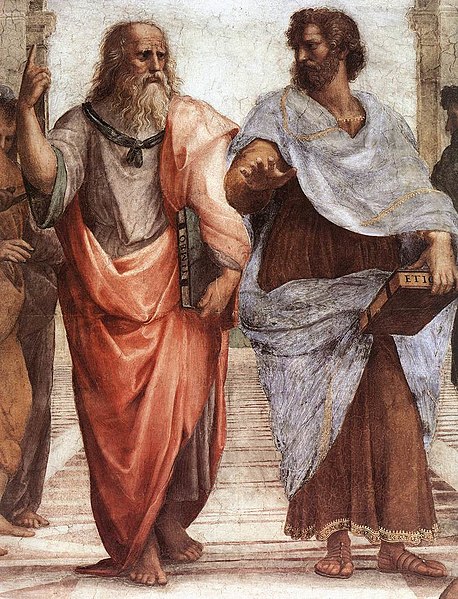Right-wing politics is the range of political ideologies that view certain social orders and hierarchies as inevitable, natural, normal, or desirable, typically supporting this position based on natural law, economics, authority, property, religion, biology or tradition. Hierarchy and inequality may be seen as natural results of traditional social differences or competition in market economies.
Anti-communist propaganda poster depicting the White movement. which says "For a united Russia", 1919
Plato (left) and Aristotle (right)
Tea Party protesters walk towards the United States Capitol during the Taxpayer March on Washington, 12 September 2009.
Maharajadhiraja Prithvi Narayan Shah (1723-1775), King of Nepal, propagated the ideals of the Hindu text the Dharmasastra as his kingdom's ruling ideology.
An ideology is a set of beliefs or philosophies attributed to a person or group of persons, especially those held for reasons that are not purely epistemic, in which "practical elements are as prominent as theoretical ones". Formerly applied primarily to economic, political, or religious theories and policies, in a tradition going back to Karl Marx and Friedrich Engels, more recent use treats the term as mainly condemnatory.
Karl Marx posits that a society's dominant ideology is integral to its superstructure.





